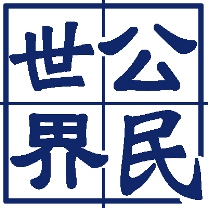在職場中,大家想要禮貌一點時,會特別在話語中加入please、just、actually、thanks等看起來無害的字眼。但你知道嗎?這些詞用錯,不但不加分,還可能扣分!它們很可能讓你的語氣看起來不專業、太被動,甚至讓對方誤會你在反駁、催促或敷衍了事。
本文整理了5個最容易用錯的「禮貌英文」,它們會讓語氣變得生硬、過於退縮,或在無意間表現出冒犯。
Actually:並非「事實上」,是「反駁你」
(X)Actually, I think we should do it this way.(其實,我覺得應該這樣做。)
actually在英文中常有「其實不是你說的那樣」的反駁感,語氣強硬,會讓人覺得你不願意合作。
語氣修正建議:
- One other way to look at it might be…
- I wonder if we could also try…
Just:並不「婉轉」,是在「弱化自己、聽起來沒自信」
(X)I just wanted to check if you saw my email.
雖然你想表達謙虛,但在英文商務溝通中,使用過多just會讓人感覺你「縮頭縮腦」、立場不穩。例如:
- Just wondering if you had any updates.
- I’m just following up on this.
這2句乍看很有禮貌,但其實會讓你聽起來「很小聲」、「沒信心」、「很怕被拒絕」。
語氣修正建議:
- Checking in regarding the email I sent earlier.
Just何時可用?
just不是完全不能用,而要用得剛剛好。以下這幾種情境,用just是合適的:
1.表達時間/程度:
- I just got here.(我才剛到)
- She’s just a beginner.(她只是新手)
2.表達單純目的:
- I just want to make sure we’re aligned.(我只是想確認我們有共識)
小訣竅:若你的just後面接的是是want to,90%可以刪掉,讓語氣更乾淨俐落。
Hope this helps:不是「親切的結尾」,是「我不想再管了」
(X)Here’s the document. Hope this helps.
Hope this helps聽起來像是「我已經做完,其他不關我的事」的敷衍語氣。若是對主管或客戶講這句,容易被認為冷淡、不夠專業。
語氣修正建議:
- Let me know if anything needs to be adjusted.
- Feel free to reach out if you have any further questions.
Thanks in advance:不是「先說謝謝」,是「你最好做喔」
中式誤用句:
Can you send me the file today? Thanks in advance.
這句看似有禮貌,但常讓人覺得你已經預設「別人一定會幫」,有種施壓感。
語氣修正建議:
- I’d really appreciate your help with this.
- Let me know if this works for you. Many thanks!
責任編輯:倪旻勤
核稿編輯:陳瑋鴻



